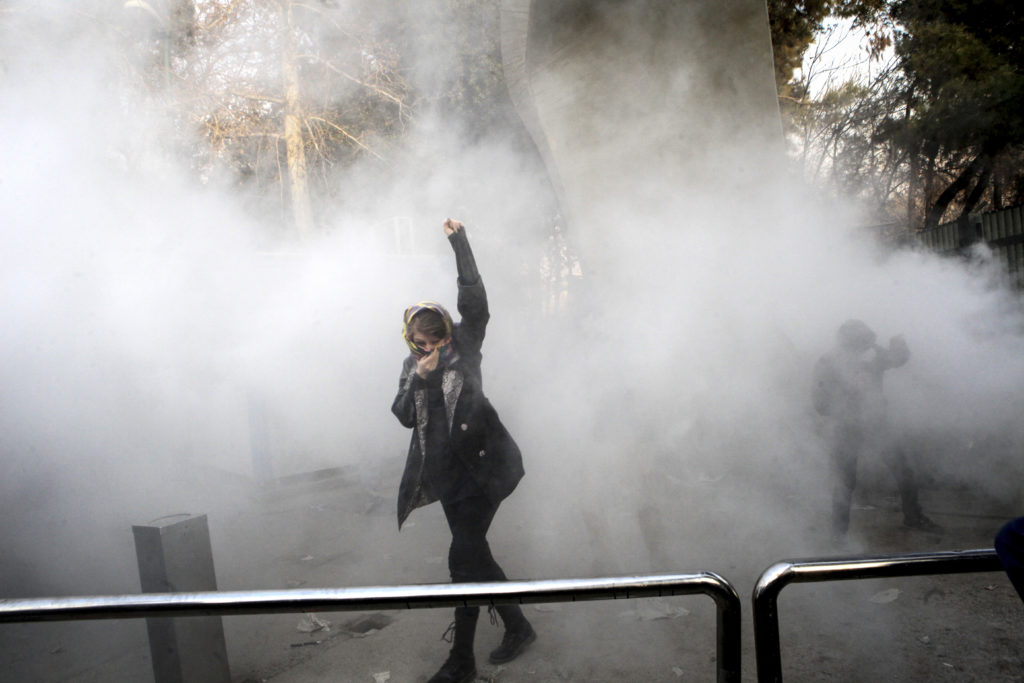As opposition to the current regime mounts in Iran, protesters in the Islamic Republic urge their government to turn its attention from Israel to domestic issues.
By: Ebin Sandler, World Israel News
On Saturday, dueling protests in Iran provided a glimpse into the different ends of the political spectrum in the nation. While college students and other anti-government protesters gathered to denounce Iran’s Supreme Leader Ayatollah Ali Khomeini, hard-liners rallied earlier in the day to express support for the Islamic Republic’s Shiite regime.
According to the the Saudi-owned Al-Arabiya network, three Iranians were shot and killed by the Revolutionary Guards at a Saturday night protest.
These demonstrations followed gatherings on Friday in the western city of Kermanshah during which protesters chanted phrases such as “never mind Palestine, think about us,” “death or freedom” and “political prisoners should be freed,” reported the Iranian Fars news agency. A smaller protest was also staged in Tehran on Friday.
On Thursday, thousands began this wave of protests in Mashhad, Iran’s second-largest city, outraged apparently by inflation, the rising cost of basic necessities, and the current regime’s repressive policies.
Social media coverage showed police using tear gas and water cannons on the protesters, reported the AP.
In response to the protests throughout Iran, US President Donald Trump tweeted, “Many reports of peaceful protests by Iranian citizens fed up with regime’s corruption & its squandering of the nation’s wealth to fund terrorism abroad. Iranian govt should respect their people’s rights, including right to express themselves.”
In this tweet, Trump warned Tehran, “The world is watching!”
Following Trump’s missive, Iranian state television reported on the protests for the first time, stating that their failure to do so was based on security officials’ orders. State television blamed the unrest on “foreign media” and “counterrevolution groups,” deeming the protests “unlawful gatherings.”
Iran lacks a free press and its government has banned citizens from accessing social media outlets such as Twitter and Facebook.
According to a Freedom House report entitled “Freedom of the Press 2017,” “Conditions for the media in Iran are highly repressive. Certain topics—including criticism of the supreme leader, Ayatollah Ali Khomeini—are subject to long-standing redlines, enforced in part through harsh online and offline censorship. Journalists are silenced and forced into self-censorship through harassment, arbitrary detention, and prison sentences for vaguely defined offenses.”


